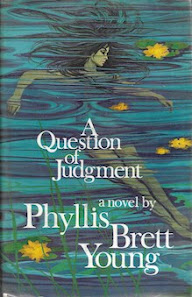 |
The old year dies! Of this be sure,The old leaves rot beneath the snow.The old skies falter from the blowDealt by the heavens that shall endureWhen sky and leaf together go.And some are glad and some are grieved.Much as when some poor mortal dies;The first sensation of surpriseIs lost in sobs of his bereaved.Or cold relief with dry-dust eyes,That view his coffin absently,And wonder first how much it cost,And next, how came his fortune lost,And how will live his family.And how he looked when he was crost.But tears—no, no—they only surgeFrom those who knew him. They were few;He had his faults; he seldom knewThe thing to say, condemn, or urge;Tis better he has gone from view.So neither do we weep—God knows,We have but little time for tears!A time for hopes, a time for fears,A time for strife, a time for woesWe have—but hardly time for tears.O it were good, and it were sweet.If we might weep our fill somewhere,In other world, in purer air,Perhaps in heaven's golden street,Perhaps upon its crystal stair!For "power and leave to weep" shall beThe golden city's legend dear;Though wiped away be every tear.First for a season shall flow freeThe floods that leave the vision clear!So if we could we would, Old Year,Conjure a tear up when you go,And pace in solemn order slowBehind your gray and cloud -borne bier,Draped with the wan and fluttering snow.Yet what is it, this year we miss?An arbitrary thing, a mark;A rapid writing in the dark;Dead wire, that with a futile hissStrikes back no single answering spark.There is no year, we dream and say,Again, no year, we say and dream,And dumbly note the frozen stream,And note the bird on barren spray.And note the cold, though bright sunbeam.We quarrel with the times and hours,The year should end—we say—when comeThe last long rolls of March's drum.And too—we say—with grass and flowersShould rise the New Year, like to someGay antique goddess, ever young,With pallid shoulders touched with rose,Firm waist that mystic zones enclose,White feet from violets shyly sprung.Her raiment—that the high gods chose.And yet the poet, born to preachWith yearning for his human kind,His verse but sermon undefined,Will fail in what he means to teach,If he proclaim not, high designed,
The Old Year dies! It is enough!And he has won, for eyes grow dimAs passeth slow his pageant grim,And many a hand both fair and roughShall wipe away a tear for him—For him, and for the wasted hours,The sinful days, the moments weak.The words we did or did not speak,The weeds that crowded out our flowers,The blessings that we did not seek.
































